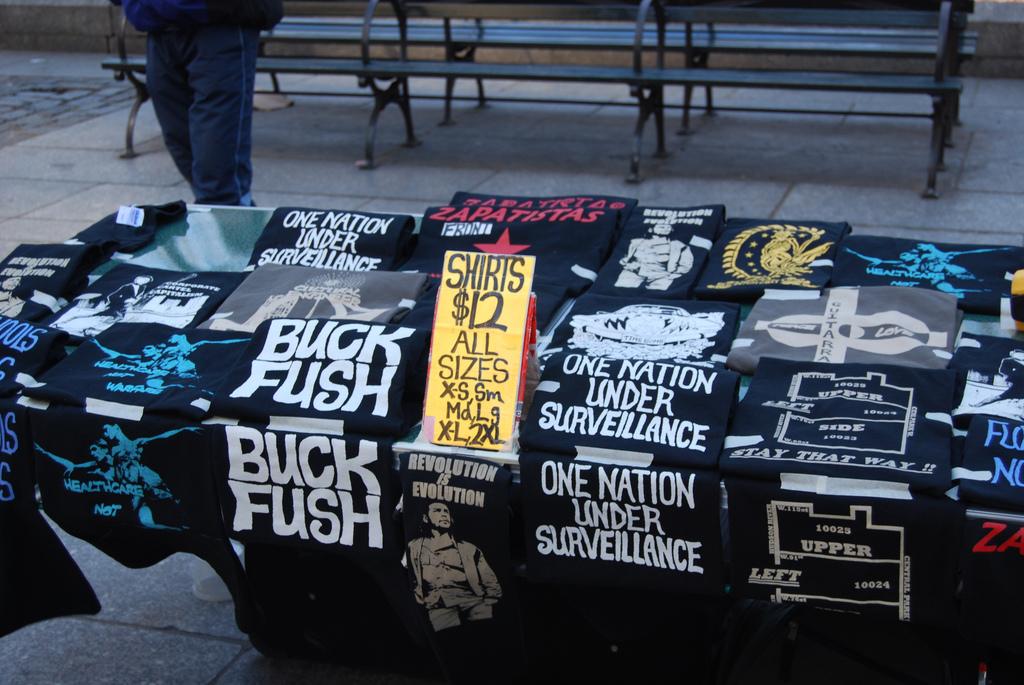End of an Era: Moving Beyond the Bush Years
June 2, 2011

Published: April 3, 2008
Election years stand out in my memory. I was an eighth grader in 2000 and, for no particular reason that I can remember, I decided to do a survey of my middle school classmates about the major issues of the campaign: abortion, gun control, social security and what to do with the now mythical and long gone surplus. I passed my multiple-choice questionnaire out to the whole school, and pretty soon I was accused of bias in my wording. Then the election came, and I sat with my family as the results rolled in from New York and Illinois and Oregon…but not Florida. The next few weeks I stayed up late, watching the whole debacle unfold on CNN. It was a battle, a race, a game of Machiavellian intrigue. I’m not sure if I really cared who won, but I was hooked. For the first time I could feel my political awareness forming, defining itself beyond childhood civics projects.
The next few years are a blur. I remember the second tower falling over and over again on TV during my government class, my high school’s anthrax scare, my friends putting up anti-war posters, my dad yelling at me that “he’s the President and you should respect him” and a slowly growing awareness that we weren’t getting the future we were promised. Then suddenly it was 2004, and everyone was very, very angry. Even though most of us weren’t able to vote, that year at my high school, there was a palpable sense that, no matter who you supported, the election was important—a life and death struggle, the fate of the world at stake. My friends and I, and many like-minded youths, made signs and went to protests, brought editorials into class, debated on Internet message boards, read anarchist political texts and listened to Rage Against The Machine. We threw our hearts into the election, and though our hopes were deadened by an uninspiring opposition candidate, we didn’t really care. All we wanted was anyone but.
When Bush won, we suddenly found ourselves with nothing to fight for. There would be four more years of his administration one way or another, so while a few of us still clung to half-hearted talk of impeachment or pipe dreams of revolution, we mostly withdrew, resigned to the fact that we would just have to wait it out. In the meantime, we devoted ourselves to other causes and issues: social justice, global warming, genocide in Darfur—problems we felt we could do something about without having to go through the legislature or survive a veto. And this was a good thing. Caring about these things gave us perspective and missions that went beyond the next election. Causes helped us figure out what needed to be done in the world beyond just ousting Bush.
And now here we are, in another memorable election season, and in less than a year, it will all be over: we will finally get anyone but Bush. For those of us whose political consciousness developed in the Bush era, this will be a new experience. Not only will we have to pick from a field of decent candidates—or, at the very least, lesser evils—but we also need to figure out just what we want from the president, what we are for as well as what we are against or what we want to change. Because things have been so consistently poor, the downhill course of the country so blatantly obvious, it has been easy for me, for many of us activist youths these past seven years, to always have opinions without ever having to do a great deal of thinking. You knew which side you were on, and from there, you could just copy the nuances of opinion from the friends and teachers and commentators who sounded off most cleverly. Now, whoever is elected, we will have to learn to analyze policy and think critically in ways that perhaps we never had to with the one president we have truly known.
At our best, we have been one of the most politically active and passionate generations in recent memory. From the cynical, smoldering embers of the past three years or the enraged conflagration of 2004, many of us have been driven by a fiery discontent, one sparked by 9/11 and fueled by the war and the scandals and a frustrating sense that we were being cheated out of our 21st Century. What we lack—what I lack—is the true cynicism of experience that comes with watching administrations come and go through the years without ever really changing America’s plodding course towards something not quite utopia, not quite oblivion.
Deep down I have always been an idealist. I have always sort of believed that with a different president, a different end to that Florida debacle that first drew my attention to politics, things really would have been better, would be better. I have no counter-example, however, no way of knowing whether the last seven years have been truly unique or whether American government is always just like this: frustrating and disappointing. But I like being an idealist, and however much I try to check my expectations, I want to believe. In the end, this election is really about how we want to move past the era of the last seven years—the only era some of us have ever really lived in. It won’t be easy or everything we hope for, and it won’t be what we expect. Then again, the future never is.











